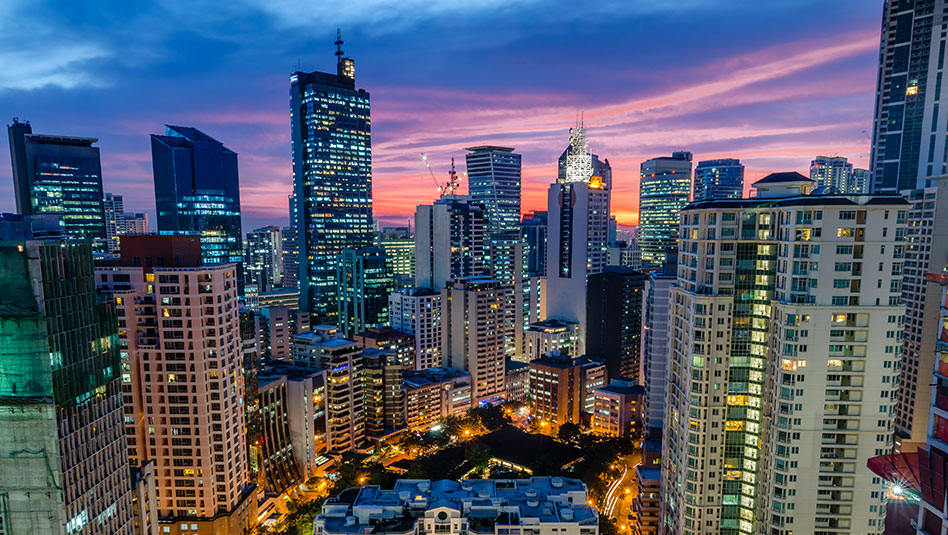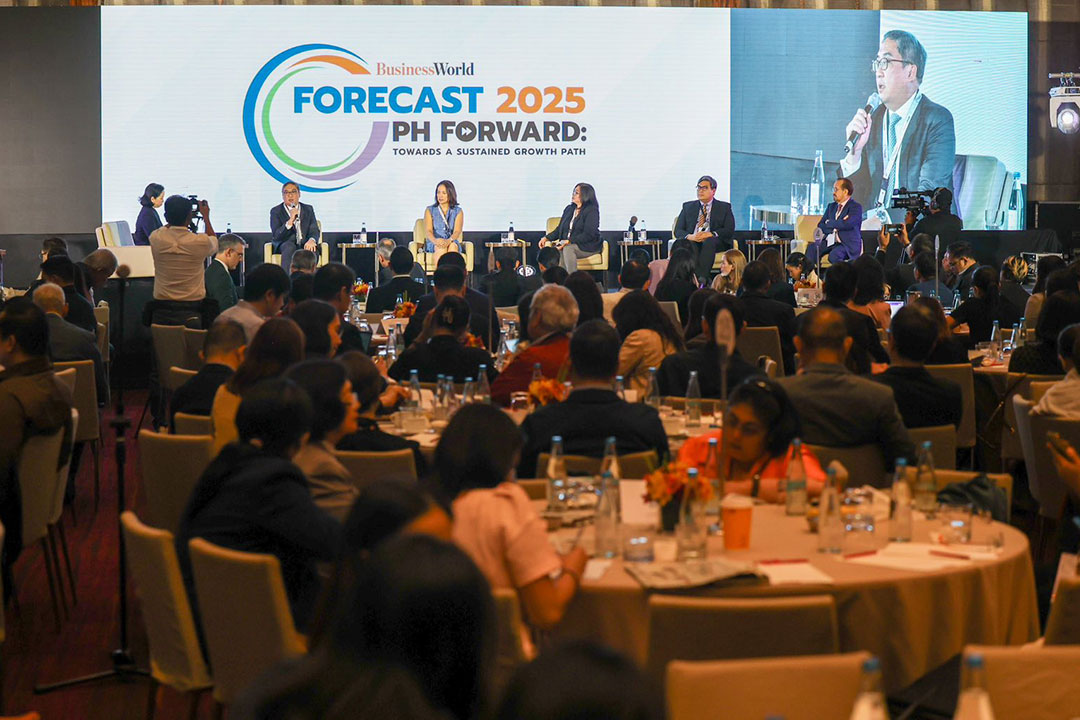




Inflation Update: Weak demand softens shocks
 DOWNLOAD
DOWNLOAD

Monthly Economic Update: Fed cuts incoming
 DOWNLOAD
DOWNLOAD

Consensus Pricing – June 2025
 DOWNLOAD
DOWNLOAD


TOP SEARCHES
Philippines’ trillion-dollar economy goal feasible but not easy

Sustained economic growth the next few years and targeted investments could help the Philippines reach its “ambitious” goal to become a trillion-dollar economy despite domestic and external challenges.
“The path to a trillion-dollar economy is not easy. It’s a very ambitious target. But it is feasible if the Philippines were to again invest in capabilities to better equip for a competitive global economy,” Zafer Mustafaoğlu, World Bank country director for the Philippines, Malaysia, and Brunei, said in a speech at the BusinessWorld Forecast 2025 forum on Tuesday.
Reaching this goal would require “significant annual growth” between now and 2033, Mr. Mustafaoğlu said.
“But it’s not the matter of whether it’s 2033 or 2035, but the point is more on sustaining that growth and chasing that potential to reach the trillion-dollar economy,” he added.
The World Bank expects the Philippines to grow by an average of 6% from 2024 to 2026. In the first nine months, Philippine gross domestic product expanded by 5.8%, slightly below the government’s goal of 6-7% growth this year.
To ensure sustained growth, the country must build an enabling environment for investments, address climate change to reduce its economic impact, and boost the economy’s resilience amid external challenges such as geopolitical risks and protectionism, Mr. Mustafaoğlu said.
The government also needs to “collect revenues effectively, increase spending efficiency, and also mobilize private sector resources to address those global challenges,” he said.
The Philippines must also invest in boosting employment, especially in productive sectors like construction and manufacturing, he added.
Jesus Felipe, a distinguished professor at the De La Salle University Carlos L. Tiu School of Economics, likewise said that becoming a trillion-dollar economy requires “a very strong level of growth.”
“That requires investing in your human capital, strengthening your market, flexibility, competition, investing in digital,” he said.
Solid fundamentals
Pavit Ramachandran, country director for the Philippines at the Asian Development Bank (ADB), said while the country’s growth trajectory remains “very promising,” risks to the outlook remain, such as an unexpected slowdown in major economies, geopolitical tensions, and supply chain disruptions.
ADB expects the Philippine economy to grow by 6% this year and 6.2% in 2025, driven by strong domestic demand, public investment, and infrastructure development.
“The global environment today is presenting unprecedented challenges for highly integrated economies like the Philippines,” he said in a speech delivered via video. “Shifts in trade policies and foreign relations among major advanced economies, such as the United States, Japan, the Europe area, alongside the People’s Republic of China, are reshaping supply chains and investment patterns.”
“Yet, these interdependencies are vulnerable to geopolitical and geoeconomic challenges, which often spill over into commodity and financial markets, affecting investor confidence and consumer sentiment,” he said.
The Philippines is well-positioned to navigate these challenges amid its solid macroeconomic fundamentals, Mr. Ramachandran said.
“The government’s focus on market mobilization, improving the investment climate, and enhancing public financial management again provides a strong foundation for such growth,” he said.
Department of Finance Undersecretary and Chief Economist Domini S. Velasquez said the government’s fiscal consolidation efforts will allow it to increase investments in its priority sectors.
“The Philippines is poised to ascend to upper middle-income in 2025, signifying a stronger and more prosperous economy,” Ms. Velasquez said. “We are steadily reducing our deficit and debt in a way that enables us to finance long-term investments, Corporate Recovery and Tax Incentives for Enterprises to Maximize Opportunities for Reinvigorating the Economy Act, and better jobs, uplift incomes, and ultimately reach our goal of reducing our poverty rate to single-digit levels by 2028.”
The government is also looking to enact reforms to increase foreign direct investments, such as reducing the tax on stock transactions to help boost the Philippine capital markets, she added.
Miguel G. Belmonte, president and chief executive officer of BusinessWorld Publishing Corp., said building a supportive policy environment that encourages investment and fosters resilience is needed to ensure sustained and inclusive Philippine economic growth.
“The government has already made strides and reforms aimed at creating a more favorable business environment for investors. And we’re off to a good start,” Mr. Belmonte said. “With fiscal discipline and measures to secure food and energy supplies, we are better positioned to mitigate shocks and maintain stability.”
“We have a bold but achievable vision to transform the Philippines into a trillion-dollar economy. While it’s not going to be easy to fulfill our goals, especially when challenges loom so large, the dream of sustained and meaningful growth in 2025 is well within our grasp.” – Aubrey Rose A. Inosante, Reporter
This article originally appeared on bworldonline.com





 By BusinessWorld
By BusinessWorld